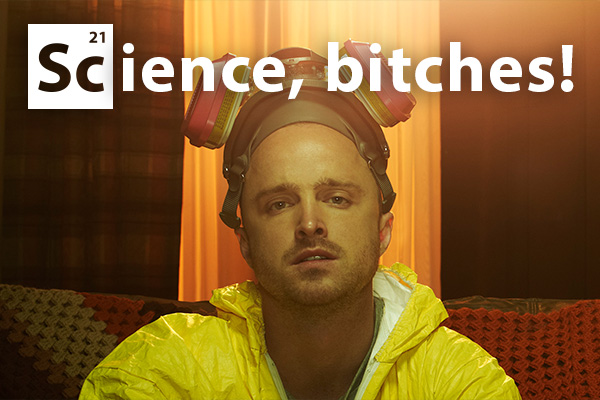Science, Bitches! | Issue 22
Playing Science
Computer modelling has long been used as a problem-solving device in science, especially when problems revolve around determining unknown properties of molecules, such as their shape. Using computers to try out many possible combinations of shapes, scientists can identify the molecular structures that are most likely to occur in real life, and then test the accuracy of these results. What’s more, by taking this just one step further and “gamifying” the computer models, some scientists have hit upon a brilliant (and fun) way to crowd-source scientific solutions.
One of the first examples of this idea was FoldIt, invented by Seth Cooper at the University of Washington. FoldIt followed on from a computer-modelling programme, Rosetta, which attempted to predict the complex ways proteins fold into the correct shape inside cells. In order to get more processing power, Cooper was hosting Rosetta on volunteers’ home computers.
Having watched on the screensaver as Rosetta tested many different proteins, volunteers started writing in, saying they could see the computer making mistakes – and that they had a better solution. Struck by the idea that human intelligence might be better at the task than computer models, Cooper turned Rosetta into a game in which players compete and collaborate to find the best possible folded structure for various proteins. Success in the game is based on how stable a player’s protein would be in a real cell.
A real-world success story for the FoldIt community came when some FoldIt teams succeeded in modelling the structure of a “scissor-protein” found in an HIV-like virus. If you mess with this particular protein, the virus can no longer infect people, making it a great drug target. The successful creation of these drugs is now far more likely, thanks to the effort of the FoldIt players.
Games are also helping to fight cancer. Researchers get so many samples that it takes them years to analyse them all. Often all they want to know is whether there are weird looking cancer cells present and, if so, how many of them there are. Sound like something you could do? It is! Check out cellslider.net and add to the 1,710,763 samples analysed by people just like you. If you’re late handing in an assignment, “I was helping to cure cancer” is one of the better possible excuses!
The research team who produced FoldIt have followed up recently with a similar game called EteRNA, which aims to increase knowledge about the folding and structure of RNA. RNA is a cousin to DNA and performs an amazing variety of functions, including translating the information contained in DNA into proteins, silencing genes when they aren’t needed, and catalysing reactions within cells.
EteRNA is exciting because the RNA structures worked out by players will be tested in the real world. The players design different RNA structures, and the best are synthesised and tested for functionality! These real-world results are then released so that players can see how their RNA performed. The overall goal is to create a catalogue of RNA designs that can be studied for their potential to target illnesses and improve our understanding and control of living cells.
So next time you are in the market for a new game, consider collaborating with other gamers all over the world to do some good for Science, Bitches!



